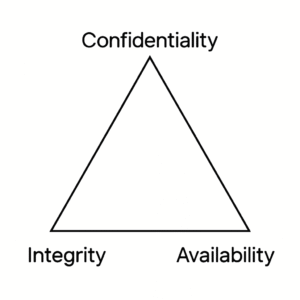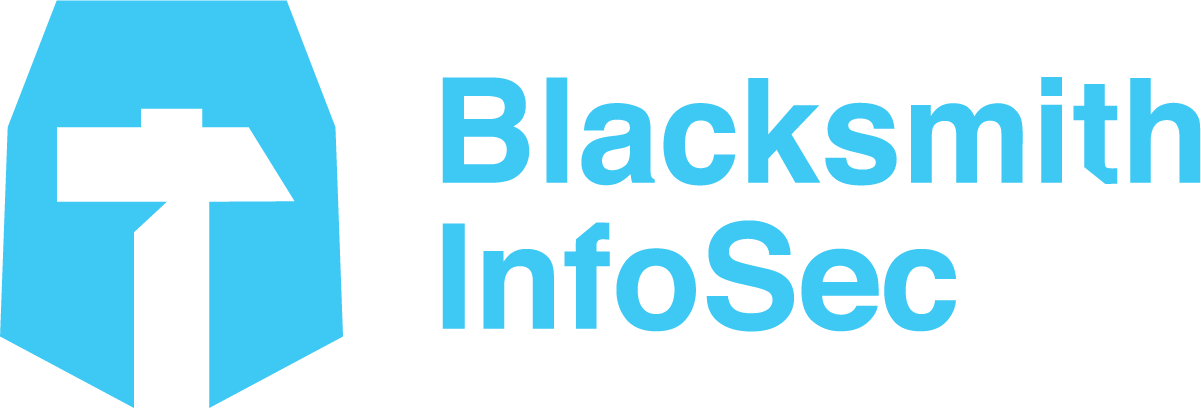The CIA Triad — Confidentiality, Integrity, and Availability — is the heart of every effective cybersecurity strategy. These three interlocking principles define what it means to keep data safe in any organization, from global enterprises to small businesses.
What Are the Parts of the CIA Triad?
-
Confidentiality: Ensures information is accessible only to those authorized to view it. Think of confidentiality as the digital version of a locked safe — your data is protected from prying eyes. This involves encryption, access controls, and privacy policies.
-
Integrity: Means data remains accurate and unaltered, except by those with proper authority. Integrity protects information from being tampered with—whether accidentally or maliciously. Techniques include checksums, version control, and strong authentication.
-
Availability: Guarantees that data is accessible when needed. Systems and information must remain up and running for users who need them. This is why organizations invest in disaster recovery, redundant systems, and robust network infrastructure.

Frameworks and the CIA Triad—A Balancing ActIndustry frameworks like NIST Cybersecurity Framework (CSF) and Cybersecurity Maturity Model Certification (CMMC) are foundational for building robust security programs. But these frameworks face challenges in giving equal weight to all three parts of the CIA Triad — often due to the specific risks organizations face or the evolving threat landscape. Confidentiality tends to dominate: Frameworks often emphasize locking down sensitive data — think encryption and strict access controls — especially in highly regulated industries. However, putting too much focus here can sometimes slow down legitimate workflows, risking availability. Integrity can be overlooked: While frameworks include controls for data integrity — such as logging and change management — they sometimes lack depth compared to confidentiality. Detecting subtle data tampering or insider threats can be tricky, especially as attacks grow more sophisticated. Availability’s changing spotlight: Frameworks initially gave less attention to ensuring systems stay online; it was assumed to be an IT function. But with the rise of ransomware and DDoS attacks, newer revisions of frameworks are now beefing up their guidance on backup, redundancy, and business continuity — making availability an equal priority. The reality: No framework perfectly balances all three corners of the CIA triangle. Regulatory requirements, business objectives, and new threats continually shift the emphasis. Frameworks can build the foundation of a mature security program, but custom risk analysis is necessary to ensure that confidentiality, integrity, and availability are all protected in harmony. |
How Blacksmith Helps MSPs Tackle the CIA Triad
Blacksmith directly relates to the CIA triad by providing managed security and compliance frameworks that address all three of these foundational aspects of information security.
-
Confidentiality: Blacksmith helps organizations establish, enforce, and maintain access controls and security policies that restrict sensitive information to authorized users only. Through policy templates, risk management, and user audits, Blacksmith enables MSPs and their clients to institute layers of protection such as access rights and security training, which help keep confidential data private and reduce the risk of unauthorized disclosure.
-
Integrity: The platform assists in ensuring the accuracy and trustworthiness of data by incorporating customizable compliance roadmaps, audit logs, and security awareness training. By supporting incident response plans and ongoing audits, Blacksmith helps clients monitor for unauthorized modifications, maintain audit trails, and establish processes for restoring data to a known good state, actively supporting data and system integrity.
-
Availability: Blacksmith centralizes the management of security practices, policies, and user access, providing MSPs and their clients with the tools to minimize downtime, automate compliance-related processes, and quickly respond to incidents. Its approach — combining governance workflows, risk management, and regular reviews — promotes the robustness of IT infrastructure, reducing the likelihood of outages and ensuring that information and systems remain available to authorized users when needed.
Additionally, Blacksmith’s integration with platforms like Liongard enables automated user access reviews and compliance reporting, which further supports ongoing verification of the CIA triad’s principles, transforming audits from checklists into genuine opportunities to identify risk and improve real-world security posture.
Industry Statistics Underscore the Need
-
The March 2025 Ponemon/Imprivata report showed that 47% of organizations experienced a data breach or cyberattack in the past year involving a third party.
-
By 2025, 75% of the world’s population’s personal data will be regulated for privacy, driving a need for businesses to ensure their enterprise data complies with privacy laws.
Integrated CIA Triad principles are no longer optional — they are a fundamental expectation. Blacksmith’s platform meets this challenge by delivering a holistic, automated, and adaptive compliance environment.
By using the CIA Triad as a lens, cybersecurity leaders can evaluate whether their chosen framework — and their practical security controls — truly address the full spectrum of risks, beyond just ticking the compliance box. This holistic approach keeps data safe, accurate, and accessible, no matter how threats and regulations evolve.



